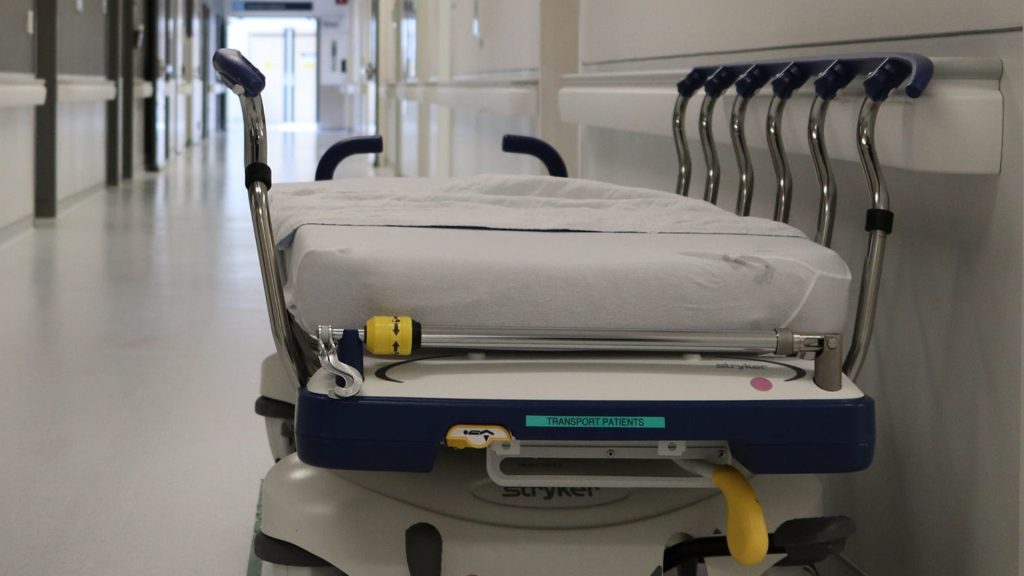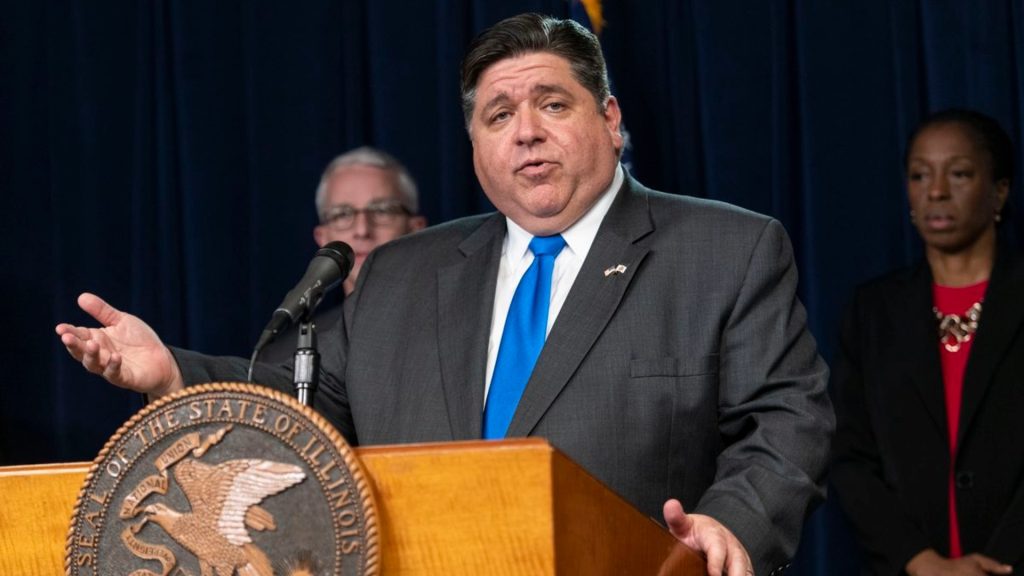Illinois has announced substantial revisions to its healthcare funding, particularly for state-funded programs that are aimed to provide healthcare for undocumented immigrants and people that have green cards. The decision to do this is in response to the increasing cost of these programs, which have gone over the initial projections. In just the last year expenses associated with providing healthcare for non-citizens have reached numbers that exceed $1.1 billion, urging state officials to reevaluate and make adjustments to eligibility requirements for these benefits.
Eligibility Changes Go Into Effective In April
Undocumented immigrants and green card holders that have been residents in the United states for less than five years will not have coverage options through two of the state’s healthcare insurance programs starting April 1..

This adjustment to the Department of Healthcare and Family Services (HFS) is part of efforts to manage costs while still trying to provide some kind of support to those that could be negatively affected.
Escalating Costs Prompt Policy Reevaluation
The financial strain of the Healthcare Benefits for Immigrant Adults and Seniors program has reached an unsustainable level, with the costs of running these programs soaring to more than a billion in just the last year.

This notable rise has caused Illinois officials to make difficult choices, with efforts aimed to mitigate the escalating expenses by altering who qualifies for the state-funded health insurance programs.
Direction Towards Alternative Coverage
Illinois is ensuring that those who may be affected by the changes will not be left without options. According to the Department of Healthcare and Family Services, “The Department is also committed to ensuring that individuals who are no longer eligible for benefits… receive helpful information about their options so they can connect to alternative coverage, particularly through the federal ACA Marketplace.”

This statement underscores the state’s efforts to aid individuals in finding alternative healthcare solutions.
Criteria For Continued Eligibility
The state’s reassessment process is a key component in determining who is and isn’t still eligible for healthcare coverage.

Jaime Minks, a HFS spokesperson stated,”The redetermination process ensures that those who are enrolled remain eligible for coverage. If an individual loses coverage through the redetermination process, it is because they no longer meet eligibility requirements, or they are required to respond or submit additional information to prove their continued eligibility, but they do not do so.”
Expected Effects On Coverage
The changes made to the policy are expected to have profound effects, with HFS estimating that at least 6,000 people will no longer have coverage by May 1.

This estimation is a direct reflection of the outcome from eligibility changes, and the state’s efforts to ensure sustainable healthcare programs and their dedication to enforcing new guidelines.
Progression Of State-Funded Health Benefits
The state of Illinois has gradually extended its Medicaid-like benefits for non-citizens, initially in 2020 they were individuals that were 65 and older with benefits. The following year they would widen these benefits to 42 and over.

The expansion of these benefits was part of the states initiative to give wider healthcare coverage options, which is now being reThese expansions were part of the state’s efforts to provide wider healthcare coverage, which is now being adjusted due to the financial inflation.
Saving Financially From The Eligibility Reduction
Dana Kelly, the Healthcare and Family Services chief of staff, shared in a Joint Committee meeting on Administrative Rules that she expects a saving that could be as much as $13 million by excluding those that are eligible for benefits from these programs.

This cost-cutting initiative is a direct response to address the programs financial sustainability in light of the increasing numbers and growing healthcare cost.
Rising Enrollment Numbers
The amount of enrollees in the state-funded healthcare coverage programs for non-citizens has increased to numbers that weren’t anticipated.

Initially the state estimated 98,500 enrollees for FY 24, the number ended up exceeding 120,000.
Realities Of Budget Estimates
Budgeting for these healthcare programs has been more difficult than it was originally expected be, with initial estimates being significantly surpassed by the actual costs of the programs.

In a stark revelation, actual expenses surpassed last year’s projections by $880 million, prompting Illinois to reevaluate and revise its financial obligations to these healthcare programs.
Government Reaction To Financial Pressures
Governor J.B. Pritzker responded to the increasing financial pressure by allocating $550 million to the program’s previous budget.

The Chicago Tribune reported that the proposal for the upcoming year would be $440 million from the state’s general fund.
National Debate And Legislative Reactions
Illinois healthcare programs adjustments come alongside a larger national debate regarding the provisions of benefits for undocumented immigrants.

This matter is particularly urgent as the United States continues to contend with an unprecedented influx in immigrants. Meanwhile, states like Maryland are contemplating legislation that will allow undocumented immigrants to purchase health insurance, proving that there are a wide range of responses to this ongoing healthcare crisis for non-citizens.






